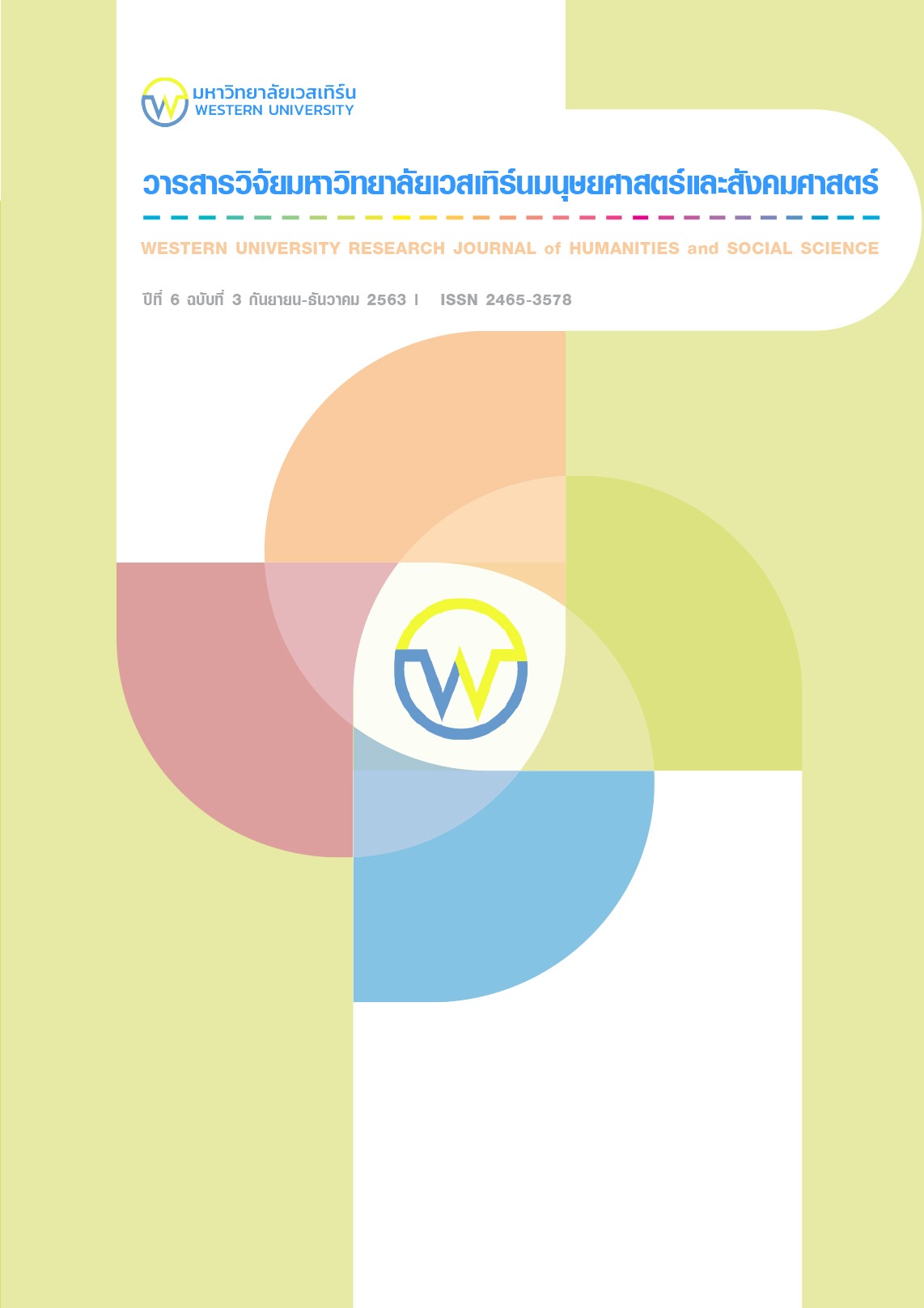A Decision Making Model for Outsourcing Flexible Automation System in Automotive Industry to SMEs Entrepreneurs and Executives in Thailand
Main Article Content
บทคัดย่อ
For everyday society, the competition in automotive industry is highly competitive. Most of SMEs cannot survive by merely relying on their source of production. Hence, using contractor is considered as an effective strategy for handling the competition. Therefore, the investment was found that executives who proceeded the process by themselves required higher capital and they also had confidence that they could handle the changing of products rapidly. The integration in cost unit was low. On the other hand, if the outsource was used, no capital was needed. The new revolution was found that the government support had a positive effect of long-term capacity to the statistical significance causing the highest value to the path coefficient. The survey was conducted by questionnaires to 311 management level samples by using structural equation model to analyze the outsourcing flexible automation system in automotive Industry to SMEs entrepreneurs and executives in Thailand. The confirmatory model of the variable question was consistent with the empirical data. The results of research findings had statistically significant relationships between all paths. and it is found that government support have a direct effect in positive to long-term capacity and the statistical significance is at the level of 0.01 and path coefficient has the highest value at 0.785. The significant finding illustrated that factors that mostly affect entrepreneurs’ decision-making are competitive factors in quality, price, durability and quantity or flexibility of flexible automation system. However, an external factor that matters is Thailand’s 20-year strategy, which mentioned that the government will support automotive industry
Article Details
เอกสารอ้างอิง
Boulos, et al., (2015). The durability of products: standard assessment for the circular economy under the Eco-Innovation Action Plan. Report for European Commission. DG Environment.
Brown, D., & Wilson, S. (2012). The black book of outsourcing: How to manage the changes, challenges, and opportunities. NJ: John Wiley & Sons.
Jeehee Min, Yangwoo Kim, Sujin Lee, Tae-Won Jang, Inah Kim, Jaechul Song,. (2019). The Fourth Industrial Revolution and Its Impact on Occupational Health and Safety. Worker's Compensation and Labor Conditions, Vol.10 Issue 4, 400-408.
Jitpaiboon, Thawatchai. (2014). "The Study of Competitive Priorities and Information TechnologySelection: Exploring Buyer and Supplier Performance,." Journal of International Technology and Information Management: Vol. 23 : Iss. 3 , Article 6.
Kline, R. B. (2010). Principles and Practice of Structural Equation Modeling. 3 rd ed. New York: Guilford Press.
Meriem Lafou, Luc Mathieu, Stéphane Pois, Marc Alochet. (2015). Manufacturing System Flexibility: Product Flexibility Assessment. 48th CIRP Conference on Manufacturing System, CMS2015.
Musso, Fabio and Francioni, Barbara. (2012). The Influence of Decision-Maker Characteristics on the International Strategic Decision-Making Process: An SME Perspective. Procedia - Social and Behavioral Sciences, vol. 58, 279-288.
Sinha, P., Akoorie, M., Ding, Q. and Wu, Q. (2011), "What motivates manufacturing SMEs to outsource offshore in China? Comparing the perspectives of SME manufacturers and their suppliers", Strategic Outsourcing: An International Journal, Vol. 4 No.1, 67-88.
Sridarran, P. and Fernando, N. G., (2013). "Influence of change management for effective outsourcing of facilities management services". Proceedings of the Second World Construction Symposium: Socio Economic Sustainability in Construction, 14-15 June, 2013, Colombo, 288-297.
Tenenhaus, M., Vinzi, V., Chatelin, Y., et al. (2005). PLS Path Modeling. Computational Statistics & Data Analysis, 48, 159-205.
Utpal Chattopadhyay, Pragya Bhawsar. (2017). Effects of Changing Business Environment on Organization Performance. The Case of HMT Watches Ltd, Volume: 6 issue: 1, 36-46
Yin-Yann Chen and Tze-Li Chen and Cheng-Dar Liou. (2012). Medium-term multi-plant capacity planning problems considering auxiliary tools for the semiconductor foundry. The International Journal of Advanced Manufacturing Technology, volume 64, 1213–1230.


